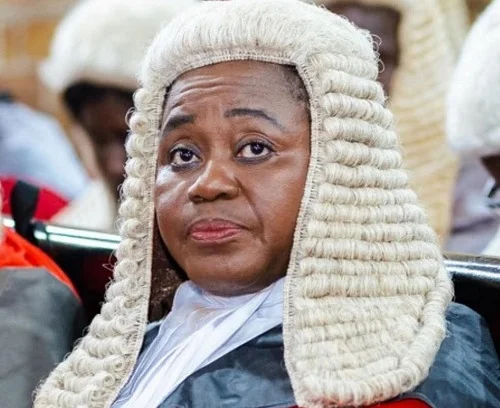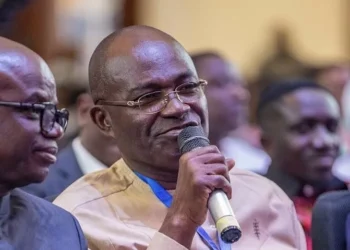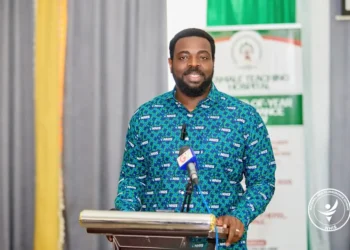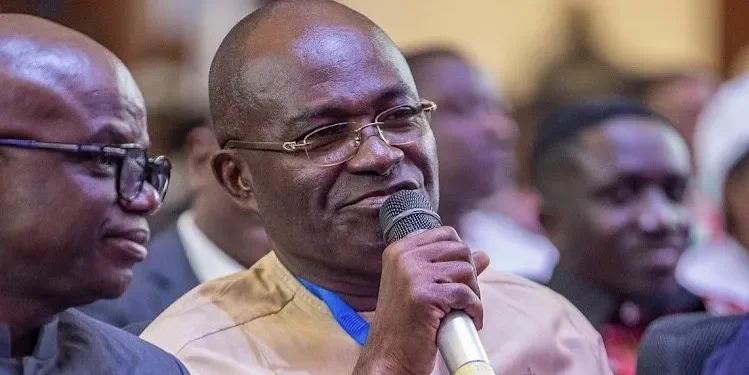The controversy surrounding the Chief Justice removal case has intensified as the legal battle over former Chief Justice Gertrude Torkornoo’s fate takes center stage.
The former Chief Justice Torkornoo has appealed to the court, arguing that her removal as Chief Justice should not automatically result in her dismissal as a Justice of the Supreme Court.
According to her, the Constitution grants her the right to remain as a judge even after she is relieved of her administrative duties as head of the judiciary.
However, Hon. Rockson-Nelson Dafeamekpor, Member of Parliament for South Dayi, strongly rejected this interpretation.
Speaking on the matter, he described the argument as “untenable”, asserting that Ghana’s constitutional structure does not allow for such a separation of roles.
“Our constitutional architecture is such that the CJ sits in a composite capacity, both as a judge and as the head of the judiciary. Dual roles.
“And therefore, where your activities of your administrative functions have been called into question and have led to a petition resulting in your removal, it also affects your role as a judge because it goes to the propriety of being eligible to sit or to be fit for purpose as a judge, court judge.”
Hon. Rockson-Nelson Dafeamekpor
Dafeamekpor emphasized that this is not the first time the courts have had to address such a matter.
He recalled a case from three decades ago when the Ghana Bar Association took legal action regarding Justice Isaac Kobina Abban. During that case, the then-Attorney General raised a preliminary objection, which the court upheld.
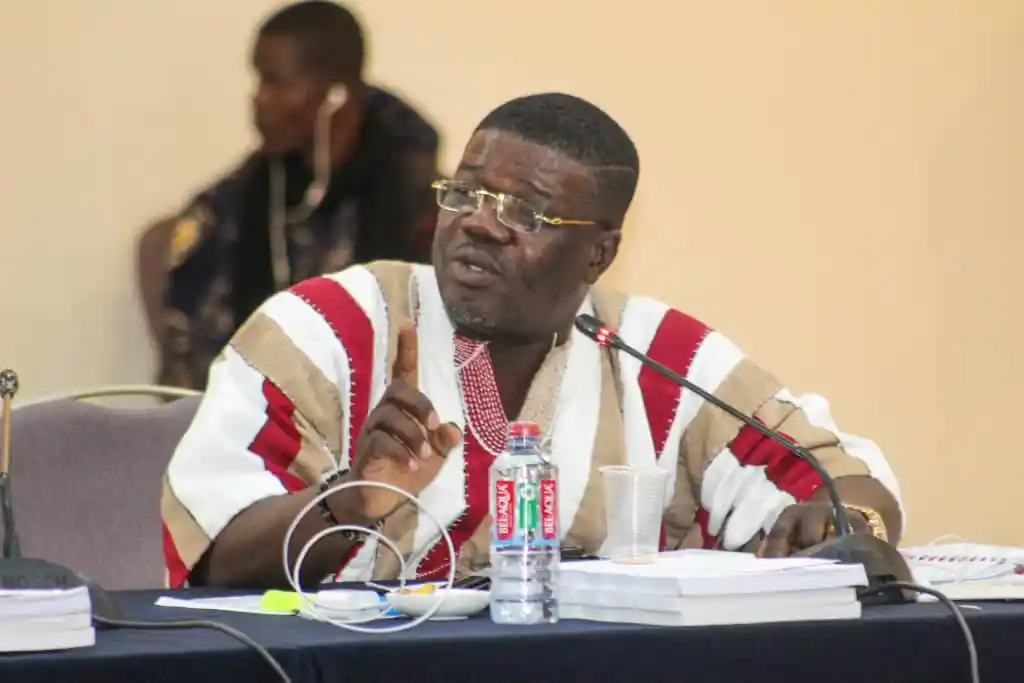
In the course of writing the ruling, prominent legal figures such as Justice Kpegah offered significant guidance on the matter.
Dafeamekpor referenced their conclusion, stating that if the legal processes against a Chief Justice are successful, they lead to removal “not just as Chief Justice, but also as a judge of the Supreme Court.”
He further cited the case of Adjei Tsum in 2005-2006, where another challenge to a leaked petition reaffirmed this principle.
According to Dafeamekpor, the court took pains to clarify that a successful petition would ultimately remove the individual from both roles: Chief Justice and Supreme Court judge.
Chief Justice Removal Case Has Clear Legal Precedent
Hon. Dafeamekpor also drew attention to a more recent ruling involving Justice Amadu Tanko, which he described as critical to understanding the present dispute.
Referring to page 26 of a 32-page judgment, the South Dayi legislator noted that the court concluded without hesitation that such applications are bound to fail because they contradict the settled legal interpretation of the Chief Justice’s position.
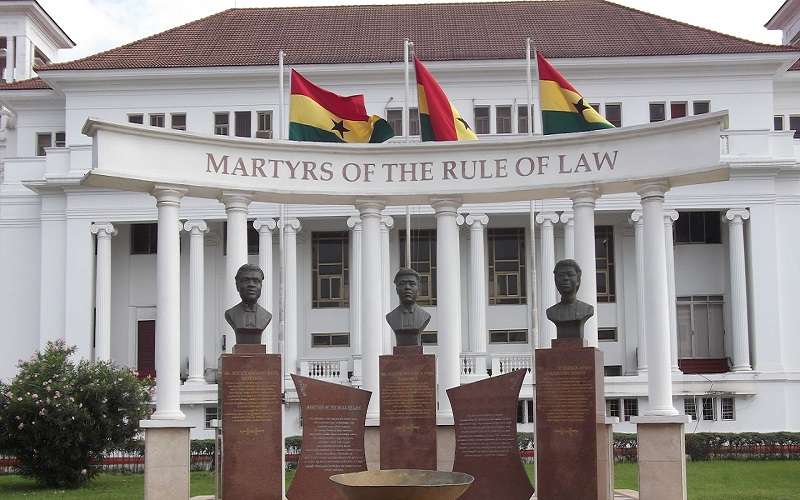
Quoting Tanko’s ruling, Dafeamekpor stated, “Mindful of the fact that the applicant, the Honorable Lady Chief Justice of the Republic, is going through a process that may define her career on the bench as Chief Justice and as a judge, one way or the other.”
According to Dafeamekpor, this shows clearly that the legal precedent on the matter has already been established and that Torkornoo’s case does not break new ground.
Hon. Dafeamekpor stressed that the issue goes beyond the individual involved and touches on the integrity of Ghana’s judiciary.
He explained that the standard for assessing a Chief Justice’s conduct is the same as that used for other superior court judges, including those serving in the Court of Appeal or High Court.
He argued that if a Chief Justice is found unfit to perform her administrative duties, it is logically inconsistent for her to continue serving as a Supreme Court judge.
“The propriety of your conduct as a Superior Court judge, which may lead to your removal as a basis of a petition questioning suit, is the same as the propriety for the removal of a Court of Appeal judge, or a High Court judge.”
Hon. Rockson-Nelson Dafeamekpor

Dafeamekpor acknowledged that Torkornoo’s defense hinges on an interpretation of Article 146 of the Constitution.
However, he insisted that historical rulings, including those he cited, make it clear that removal as Chief Justice also disqualifies the individual from continuing as a judge of the Supreme Court.
Meanwhile, the case has sparked intense debate in legal and political circles, with some observers warning that the outcome could reshape how Ghana interprets the roles and responsibilities of its top judicial officers.
For now, Dafeamekpor maintains that the courts have consistently ruled on similar cases and that there is little room for ambiguity.
As the case progresses, many Ghanaians will be watching closely to see whether the judiciary upholds past precedents or paves the way for a new interpretation of constitutional law.
The final decision will not only determine Torkornoo’s future but could also set a lasting precedent for judicial accountability in the country.
READ ALSO: Shatta Wale Requests Private Jet For Birthday Celebration



